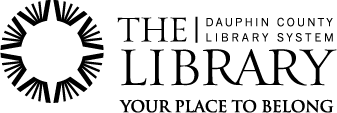By: Emily Anderson
Portia and Poppins arrive at the William H. and Marion C. Alexander Family Library wearing seasonal bandanas, ready to do the important work of improving literacy. In their meeting rooms, they sit calmly and patiently through 15-minute appointments, listening to children reading books during The Library’s “Paws 2 Read” program. Children ages 6 to 11 can bring their own books to share with Portia and Poppins and their handlers, Betsy and Flo, or they can choose from a selection of dog-themed books The Library keeps on hand.
For many young readers, the task of reading aloud can be incredibly daunting – but reading aloud to a dog is a completely different story. Animals don’t judge you, let alone tease you. Animals don’t have a preference for how quickly you can sound out a word, and they won’t care about your cadence. During a program like Paws 2 Read at The Library, reluctant readers who may lack confidence in their abilities are paired with a consistent listening companion, receive unconditional support, and have the opportunity to build positive, lifelong reading experiences.
Research shows that dogs not only help reduce stress reactions in children performing difficult tasks, but also that playing with a dog helps improve mood and calm the mind. These positive cognitive effects motivate students to keep returning, all while they practice their reading. Over time, this positive association with reading aloud can have a monumental impact on a child’s attitude towards reading. This continued practice also has the potential to dramatically improve a child’s reading fluency, or their ability to read with accuracy, speed, and expression. By regularly reading to dogs, struggling readers have an opportunity to develop the self-esteem and confidence they need to be lifelong book lovers.
Paws 2 Read takes place on alternating Monday evenings at the Alexander Family and East Shore Area Libraries. Elizabethville Library hosts the program every other Wednesday evening. Children ages 6 to 11 can sign up in advance for 15-minute appointments through The Library’s programming calendar [link: https://dcls.libcal.com/] or check availability here [link: https://outlook.office.com/book/Fall2022Paws2Read@dcls.org/?ismsaljsauthenabled].
